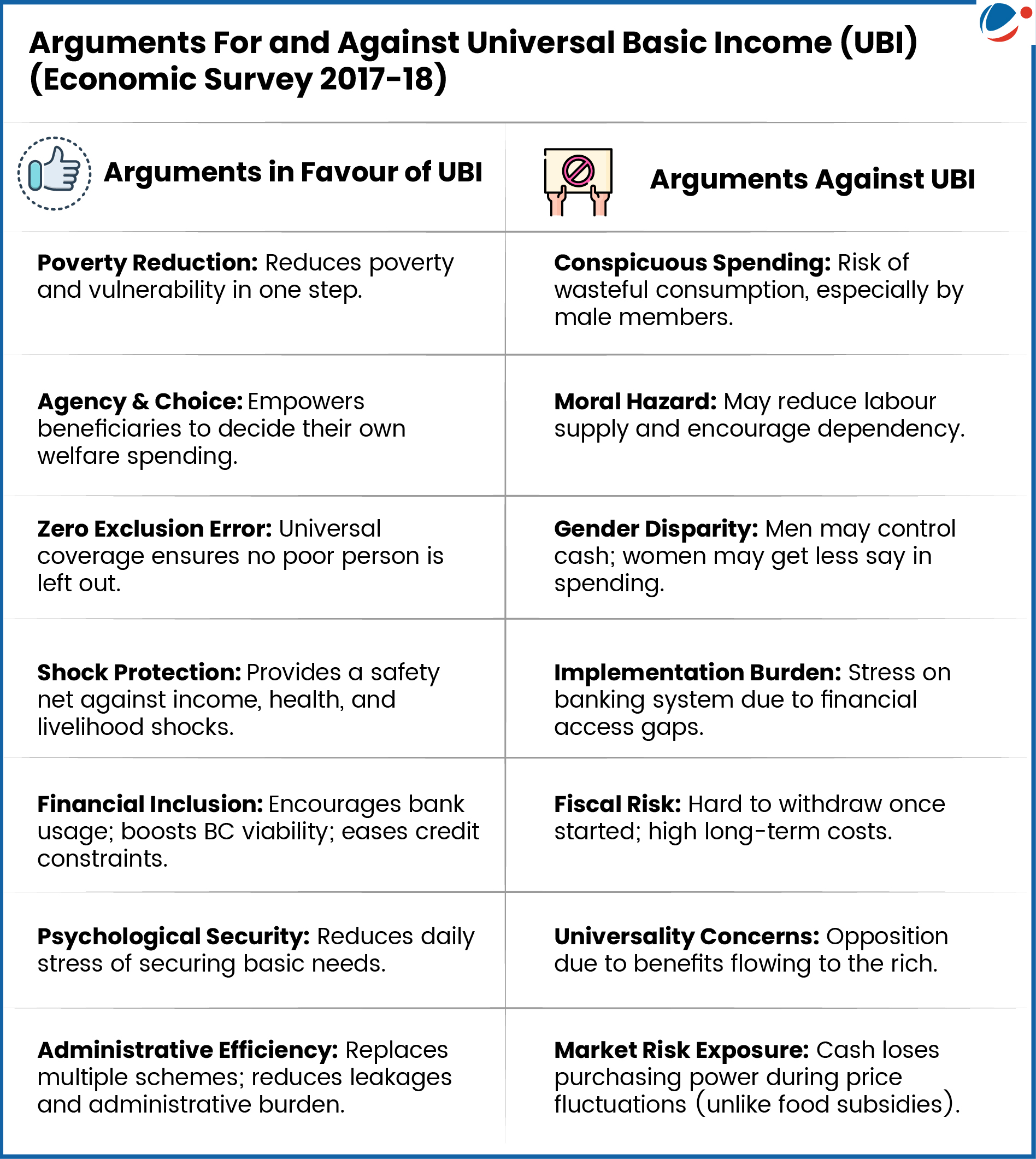The relevance of UBI, first proposed by the Economic Survey 2016–17 as an alternative to fragmented welfare schemes, has grown sharper today due to a convergence of socio-economic pressures that traditional models can no longer address such as:-
- Rising Wealth Inequality: The widening rich–poor gap has reached levels comparable to the pre-independence era.
- Technology-Led Job Displacement: Automation and AI threaten large segments of India’s informal and semi-skilled workforce.
- Growing Economic Insecurity: Gig and platform-based work has increased income volatility and reduced social protection.
- Intensifying Socio-Environmental Stress: Climate-related displacement and rising mental health burdens are straining household stability.
Concept of Universal Basic Income (UBI)
- Definition: Periodic, unconditional cash transfer to all citizens, regardless of income or employment.
- Core principles:
- Universality: Covers all citizens.
- Unconditionality: No link to employment or income status.
- Agency: Empowers individuals to make economic choices.
- Global trials: Finland, Kenya, improved health, food security, and mental well-being.





